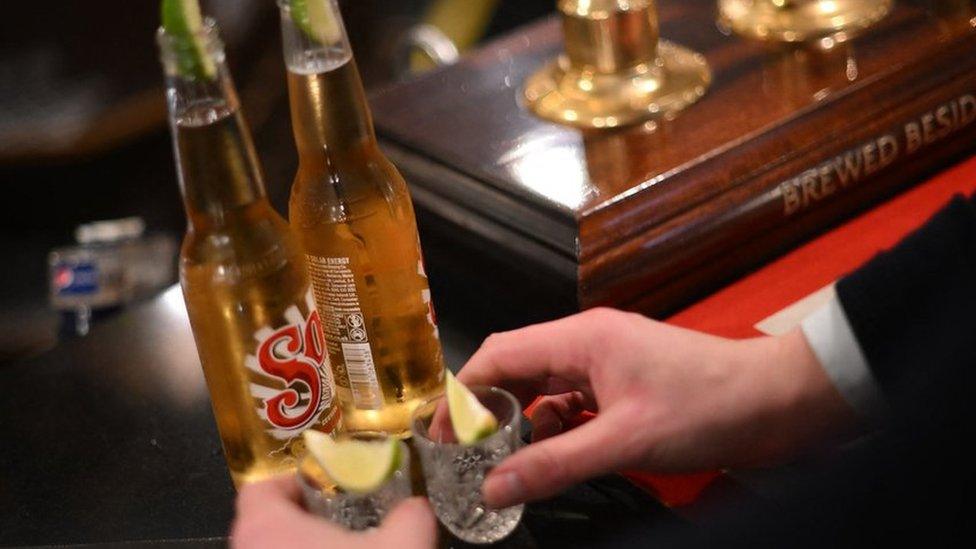Beer and wine sales in Canada fall to all-time low
- Published

Alcohol sales by volume hit record lows in Canada.
Canadians appear to be losing their taste for alcohol, according to findings in a new report that showed beer and wine sales at historic lows.
From 2021-22, volume of beer sold per person in Canada slumped drastically. The volume in wine sales slid by its largest margin since 1949.
Stricter drinking guidelines and a new alcohol tax on the horizon send signals that further change is brewing.
Despite the trend, beer remains the country's go-to inebriant.
The report, released by Statistics Canada, a government data cruncher, found that sales of alcohol slid for first time in a decade, by 1.2%. Wine sales decreased by 4%, the largest decrease ever recorded by Statistics Canada.
Beer's time as the top alcoholic beverage by sales has shown signs of going flat, according to the report. Over the last 10 years, beer has continued to lose market share, totalling an 8.8% drop.
Meanwhile, ciders and wine coolers, also known as alcopops, have claimed the majority of that lost market share, increasing by 5%, the highest rise in market share among all alcoholic beverage categories. Their total value in sales were up by 13.5% from 2021-22 compared to the previous year.
Although overall alcohol sales based on volume decreased, total sales were up 2.4% because of rising costs driven by inflation. For the fiscal year ending in March 2022, liquor stores and other outlets still managed to sell $26.1bn (Ā£21.69bn) in booze.
However, more change could be fermenting in the alcohol industry. Starting on 1 April, federal taxes on all beer, wine and spirits will rise by 6.3%, the Toronto Star reports.
Even more sobering, new guidelines released last month by the Canadian Centre on Substance Use and Addiction recommended zero alcohol intake. And for those who must drink, according to the guidelines, anything beyond two glasses a week is too many for good health - a far cry from the 9.5 alcoholic beverages Canadians of legal drinking age consume per week, according to Statistics Canada.
With recreational sales at $4.1bn, cannabis still has a way to go to gain equal footing among Canada's legal intoxicants.